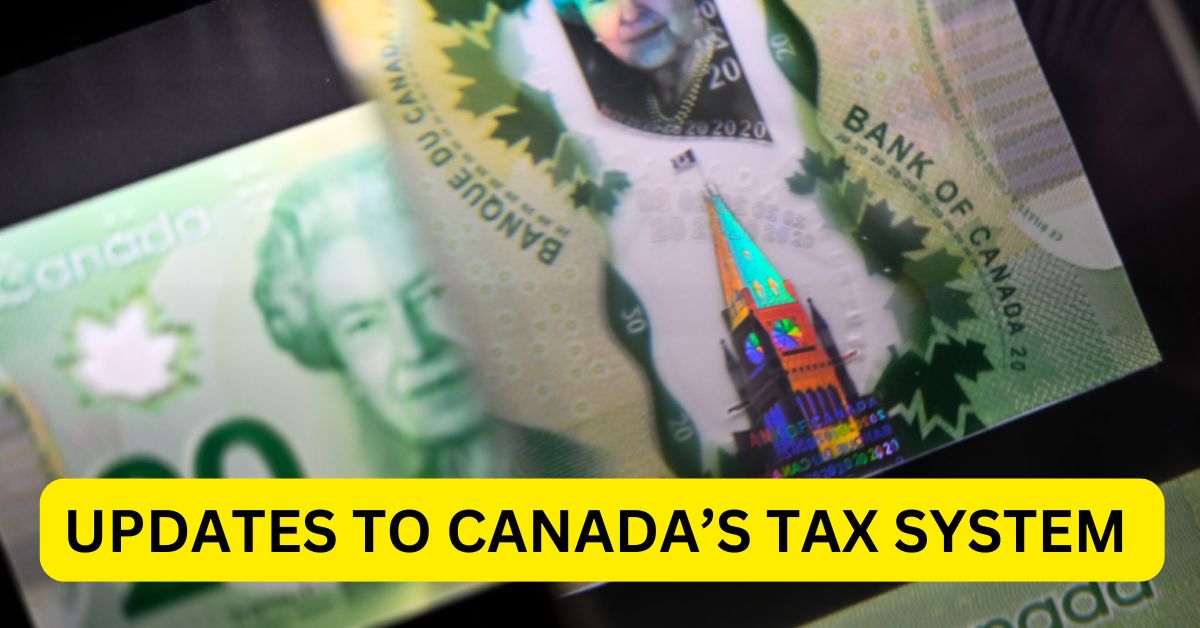Canada’s tax system will undergo important updates in 2025, impacting individuals, businesses, and retirees.
These changes aim to provide better financial support, increase savings opportunities, and offer tax relief to Canadians. Here’s a simplified breakdown of what’s new and how it might affect you.
Key Changes in Canadian Tax Brackets for 2025
To help Canadians cope with rising inflation, income tax brackets will increase by 2.7% in 2025, following a 4.7% rise in 2024. This adjustment ensures taxpayers won’t pay more taxes just because of inflation.
Here are the updated federal tax brackets for 2025:
- 15% on incomes up to $57,375
- 20.5% on incomes between $57,375.01 and $114,750
- 26% on incomes between $114,750.01 and $177,882
- 29% on incomes between $177,882.01 and $253,414
- 33% on incomes above $253,414
This means even if your income remains the same as in 2024, you’ll likely pay less tax because a smaller portion of your income is taxed at higher rates.
Updated Basic Personal Amount for 2025
The Basic Personal Amount (BPA), the portion of income not subject to federal taxes, is also increasing. For 2025:
- BPA ranges from $14,538 to $16,129, depending on your income level.
- This is higher than the 2024 range of $14,256 to $15,705.
- Canadians with lower incomes benefit the most from this increase.
Changes to the Canada Pension Plan (CPP)
If you’re working in Canada, expect higher CPP contributions in 2025 due to ongoing pension reforms. These changes aim to provide retirees with better financial support in the future.
Here’s what’s new:
- Base earnings cap will increase from $68,500 (2024) to $71,300 (2025).
- Second-tier earnings cap will rise from $73,200 (2024) to $81,200 (2025).
Contributions for employees and employers will increase accordingly, but these adjustments will result in higher payouts for retirees who have contributed since 2019.
Filing Taxes in 2025: What You Should Know
Filing your tax return on time is crucial to access benefits like the GST/HST credit and Canada Child Benefit (CCB). Here’s what you’ll need to file:
- Be a Canadian citizen or permanent resident.
- Have income (from Canadian or foreign sources).
- Claim applicable tax credits or benefits.
- File returns if requested by the Canada Revenue Agency (CRA).
Late filing can lead to penalties and missed opportunities for benefits.
Why These Changes Matter
The 2025 tax updates are designed to:
- Help Canadians save more by increasing contribution limits.
- Offset the rising cost of living due to inflation.
- Provide improved retirement security through enhanced CPP benefits.
- Ensure a fairer tax system where income increases are not disproportionately taxed.
Conclusion
The 2025 updates to Canada’s tax system reflect the government’s efforts to balance inflation, retirement security, and financial fairness for Canadians. From revised tax brackets and increased CPP contributions to a higher Basic Personal Amount, these changes are designed to provide relief and foster long-term financial stability.
Understanding these updates is crucial for effective tax planning and maximizing potential benefits. Whether you’re a working professional, a retiree, or a business owner, these adjustments can impact your financial decisions for the year ahead.
To make the most of these opportunities, ensure you file your taxes on time, stay informed about further developments, and consult with a tax expert if needed. Being proactive will help you save more, pay only your fair share of taxes, and plan for a secure financial future.
This article has been carefully fact-checked by our editorial team to ensure accuracy and eliminate any misleading information. We are committed to maintaining the highest standards of integrity in our content.
Filza specializes in simplifying financial topics for everyday readers. Whether breaking down Canada’s tax guides or U.S. benefits like SNAP and VA Disability, Filza’s relatable writing style ensures readers feel confident and informed. Follow her insights on LinkedIn or reach out via email at shewrites.health@gmail.com.
